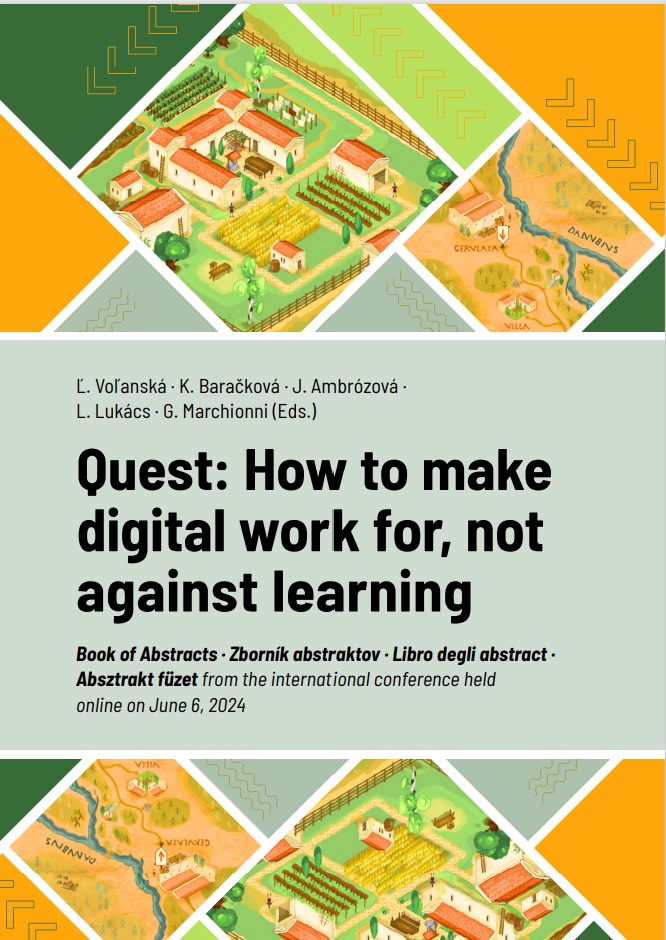Quest: How to make digital work for, not against learning: Book of Abstracts from the international conference held online on June 6, 2024

- Voľanská, Ľ., Baračková, K., Ambrózová, J., Lukács, L., Marchionni, G ed. (2024). Quest: How to make digital work for, not against learning: Book of Abstracts from the international conference held online on June 6, 2024. Bratislava : Institute of Ethnology and Social Anthropology of the Slovak Academy of Sciences. ISBN 978-80-974434-6-7
The Book of Abstracts from the one-day online conference titled Quest: How to make digital work for, not against learning, held on June 6, 2024, offers its readers – educators, didacticians, education and cultural heritage experts, innovators, and enthusiasts of the diverse applications of digital tools in education – abstracts from presenters and discussants that address the role of digital tools, educational applications, and gamification in shaping the knowledge and experiences of learners of all ages.
The topics covered include digital tools and innovations in education (challenges and opportunities), the design and development of educational apps for students, the impact of information technologies on teaching and learning processes, the use of digital applications in the exploration of cultural heritage, the integration of digital literacy into school curricula, and the evaluation of the effectiveness of educational applications in improving learning outcomes. Presenters also shared best practices and presented various case studies on digital education, highlighting current and potential trends in educational methods and technologies.
The conference also featured a public presentation of the new Heritage Quest AR educational mobile app. The app is an educational mobile game about Limes Romanus. It explores the daily life of people on the northern frontier of the Roman Empire in the 2nd century AD, which connected several countries. The game was developed as part of the Erasmus+-funded Exploring the Past in Peace project.
The project’s leading partner is Impact Games (SK), and cooperating partners are the Institute of Ethnology and Social Anthropology of the Slovak Academy of Sciences (SK), CRHACK LAB FOLIGNO (IT), Enabler Ltd. (HU), and Art Rebel 9 d. o. o. (SL).
The abstracts are available in the four conference languages (English, Slovak, Italian, and Hungarian). The publication also includes links to audiovisual conference recordings in three languages (English, Slovak, and Hungarian).
Keywords:
digital education, digital literacy, mobile applications, gamification, cultural heritage, Limes Romanus, museum, primary education